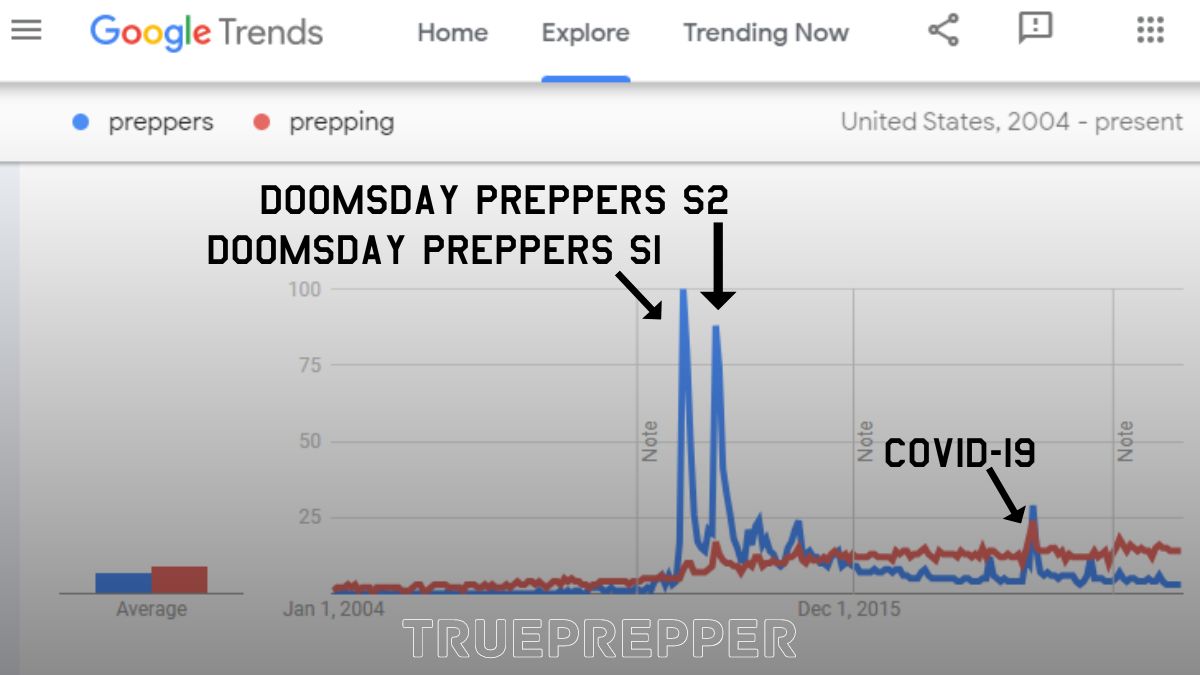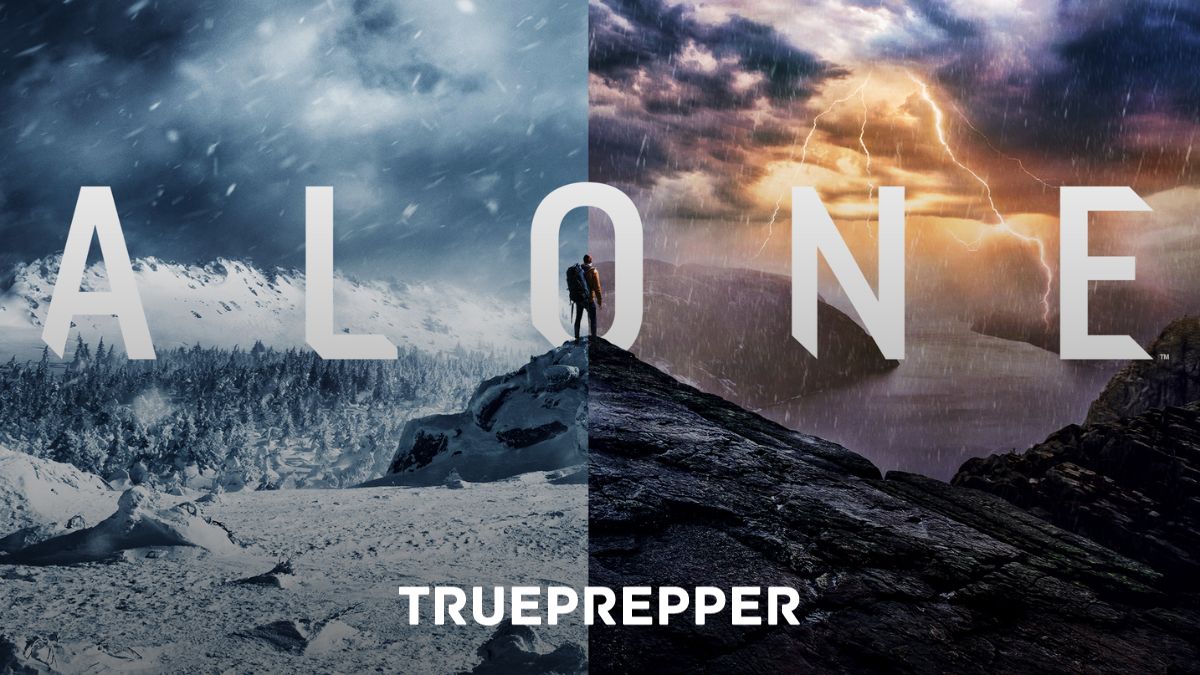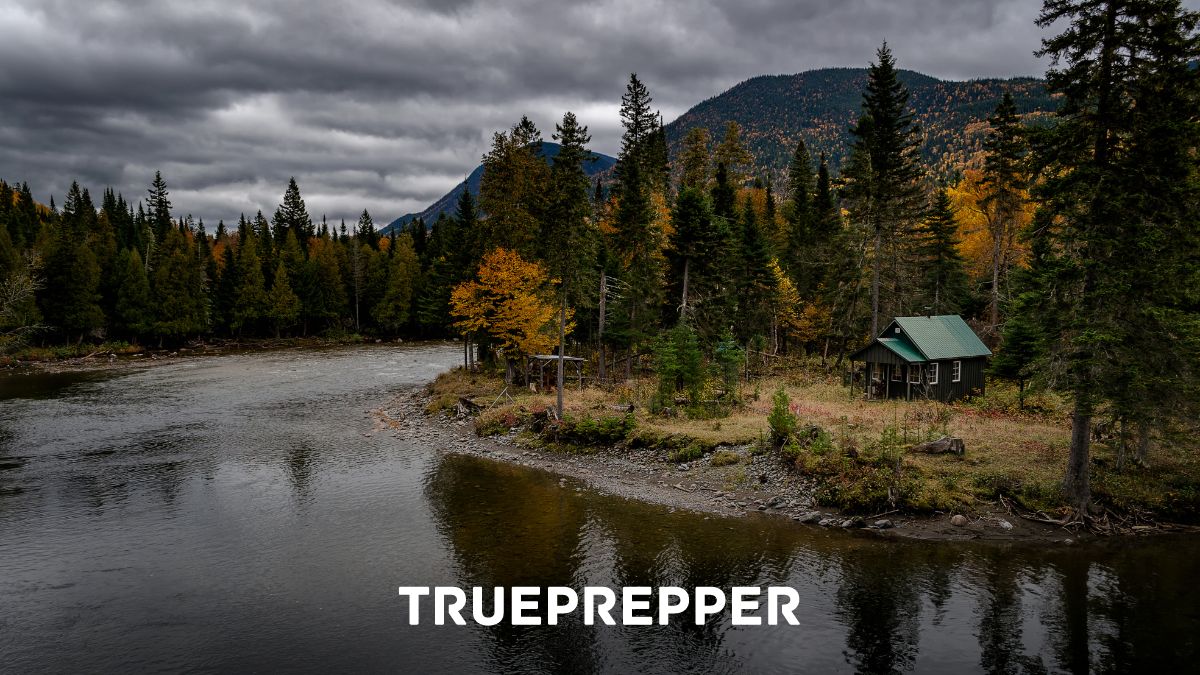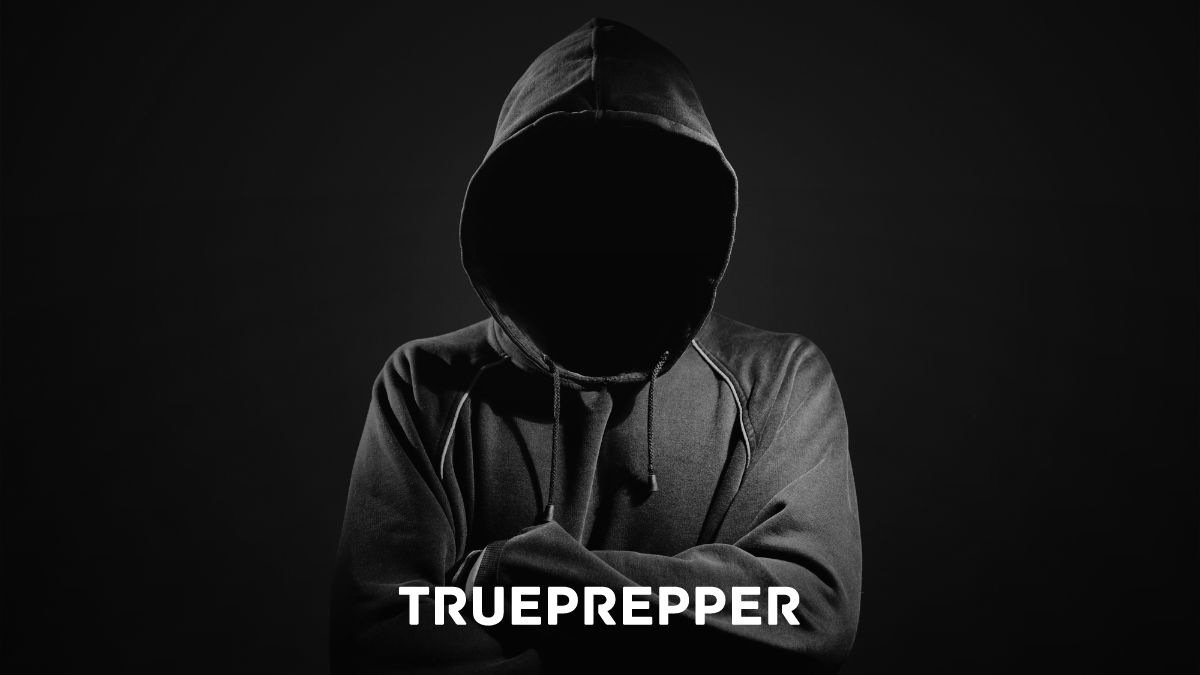There are many types of preppers out there. With over 10 million preppers in the US alone, it’s no wonder that there are subtypes and labels that have emerged over the years.
A few of the types you’ll instantly recognize from TV shows, people you know, or even yourself. No matter the approach, each type of prepper has merit although there can certainly be drawbacks as well.
Contents (Jump to a Section)
- Types of Preppers
- The Typical Prepper
- Doomsday Preppers
- Wilderness Survivalist
- Minimalist Prepper
- Off-Grid Homesteader
- Lone Wolf Prepper
- Community Prepper
- Armchair Prepper
- Urban Prepper
- Famous Preppers
- Other Prepper Types
Types of Preppers
We’re not much for labels- it’s an easy way to get caught off guard when people subvert your expectations. Still, categorizing and understanding how people operate can help with some inner reflection or just being aware of how different people approach things.
You’re probably familiar with many of these ‘types’ of preppers and can name a few that you’ve met. Whether you are prepared for emergencies or not, you probably have something in common with all of them.
We’ll list out the 10 most popular types of preppers, how they are defined, and our take on the benefits and drawbacks.
The Typical Prepper
The average, or ‘typical prepper’ is most common and shares several characteristics of other types of preppers. As far as preparedness goes, they hit all the marks close to the middle:
- They have a solid plan
- They are aware of local threats and regional risks
- They have supplies to last around 2 months without assistance
- They don’t talk about preparedness much, except with their family and inner circle
Typical preppers are usually motivated by a sense of duty and preservation rather than passion. Prepping is simply something they ‘have to do’ as a responsibility for themselves or their family. This isn’t necessarily a good or a bad thing, just an observation.
Doomsday Preppers
Brought to the forefront by a TV show over 10 years old, doomsday preppers are not nearly as common as you may think. The format of the show highlighted specific doomsday events and then went through individual preparedness plans related to that event. While they aren’t in high supply (and do not represent preppers as a whole), doomsday preppers exist with a large focus on doomsday (or apocalyptic) events.
In reality, most preppers (and even doomsday preppers) are not preparing for specific events. We prepare for a wide range of situations, which we are much more likely to encounter due to cumulative probability (something picked up from risk analysis).
Still, it can’t be ignored that Doomsday Preppers was one of the most significant public-facing events for preppers in this millennium.

Wilderness Survivalist
There is something about the draw of nature and the self-reliance needed for it. Maybe it’s the balance of tranquility and savagery or something buried deep within our souls that yearns to go back.
Wilderness survivalists are planning on doing just that. Most of their preparedness relies on their skills and abilities to hack it in the woods, or wherever their outdoor plans take them. It’s definitely a romantic concept, but few are in a position to plausibly pull it off. Many survivalists and preppers plan to rely on natural resources in long-term survival situations, but solely relying on them is not an easy task.
Wilderness survivalists learn a huge range of outdoor survival and primitive skills. Re-wilding and primitive survival schools often are not prepping-focused and are a hobby and lifestyle of their own.
Many survival TV shows highlight the hardships of this style of survival- including one of our favorites: Alone.

Minimalist Prepper
Preppers are often described by how many and what type of supplies they have on hand. We are a very resource-driven bunch, but an abundance of resources isn’t always our solution. Minimalist preppers instead focus on having high-quality versatile gear and supplementing lower resources with a larger skillset and knowledge base.
This approach works well for those with less space to store resources or people who use minimalism in their daily lives anyway.
Being a minimalist prepper isn’t as simple as it sounds. Often, minimalist preppers rely on wilderness survival skills and community prepping to shore up their weaker areas in food and water storage.
Off-Grid Homesteader
Going off-grid is an entire lifestyle. Many homesteaders take it as an insult when they are dubbed as preppers, simply because preparedness isn’t a choice for them- it’s a necessity. An off-grid homestead requires an abundance of preparedness resources and skills that they use on a daily basis.
Ultimately, an entirely self-sufficient homestead is about as far as preppers can go when it comes to preparedness. It offers freedom, flexibility, and plenty of room to accomplish whatever project they set their mind to.
The practical downside, of course, is that you are separated from resources. Medical needs and other issues that may crop up that are out of your skillset can take time to address.
Still, the off-grid lifestyle is enchanting for many people and you can follow along with plenty of people showing how they get along:
- The 10 Best Off-Grid Homesteading YouTube Channels
- 17 Off-Grid TV Shows Worth Watching

Lone Wolf Prepper
Lone wolf preppers are more common than you may think. They get themselves in an excellent position for a wide range of survival situations. They tend to focus on bugging in or out solo (or with immediate family) and plan for zero external support.
This works great in parallel with the gray man concept, since lone wolves typically practice good OPSEC and like to lay low.
Sometimes, people confuse lone wolf preppers with solo raiders- who aren’t preppers at all.
Raiders: Opportunists (not preppers) that plan on raiding other’s supplies using force or intimidation. They typically stockpile firearms and claim that they are preppers, however, their preparedness plan is to raid, pillage, and loot others.
Being a lone wolf has its pros and cons, but usually, the cons can outweigh it in the long run. Doing anything alone for long periods can be taxing mentally, emotionally, and physically.

Probably the most altruistic group of all preppers, community preppers are invested in getting their entire community prepared (or creating their own prepared community).
There are two major approaches to community prepping:
- Find like-minded people to start prepping with
- Spread prepping through your existing community
The last one is usually accomplished by volunteering with groups like CERT and getting involved in many prepper-adjacent hobby communities.
Armchair Prepper
We don’t mean to be disparaging to any type of prepper, but that doesn’t mean we won’t tell the truth.
Armchair preppers are the ones that stock up on plenty of resources, and can even learn how to use them by reading or learning about it- but never actually get out their gear and use it.
This group is larger than you think it is. As we mentioned before, preppers appreciate resources- but how good are resources without the skills to match? Still, something is better than nothing- and resources are always a good start. If this type of prepper hits a little close to home for you, try familiarizing yourself with your gear when you have the time and if you are physically able.
Urban Prepper
Do you have a SCARE kit? If so, you might be an urban prepper. Urban preppers aren’t necessarily from an urban area but have plans to interact with them in some sort of capacity. That said, most urban preppers are from cities and have at least some sort of bug-out plan to leave the city if things get hairy.
Sometimes apartment preppers fit in this category as well, even if they live in the suburbs. Bug out plans and traveling through cities aren’t just for the city-dwellers.
Urban preppers are similar to typical preppers but may focus more heavily on civil unrest situations and even carry specific tools, like a sillcock key to access urban resources. Urban areas bring many more risks during disasters and emergencies, so the importance of preparedness in these areas grows accordingly.
Famous Preppers
Famous preppers are becoming more vocal. You used to not hear very much about prepping from famous people, but these days everyone from Post Malone to Elon Musk is talking about their own preparedness.
Typically, their fame comes with fortune so they can afford plenty of resources, including preparedness consultants to protect themselves and their assets. Many have invested in large high-end bunker communities to share in the worst SHTF situations.
If you want to learn more, we cover it in more detail:
- 10 Celebrity Preppers Ready for Anything
- 10 Preps You Literally Can’t Afford
It’s not surprising that those with plenty of resources spare some for preparedness, but it is surprising that they are willing to share how and why they do it. We see it as a good thing that will help normalize prepping in the long term.
Other Prepper Types
There are plenty of other prepper types that describe the wide range of people who approach preparedness differently:
- Modern Preppers – these preppers lean into tech solutions and crypto diversification, implementing their version of prepping using a wide range of modern solutions.
- Bioprepper – preppers that focus on preparing for a pandemic (this was more common before COVID-19, believe it or not). Focusing your preparedness on one type of disaster event is not something we recommend.
- Organic Preppers – preppers that prioritize using organic foods and materials.
- Housewife Prepper – some moms take the mantle of getting everyone in their house organized and prepared. While very close to typical preppers, these gals approach prepping with a nurturing mindset. Don’t underestimate female or housewife preppers- most of them are just as badass if not more than their guy counterparts.
Political Preppers
We view political affiliation as separate from prepping types.
- Right-Wing Preppers – conservative preppers are common and represent the majority of people who get into preparedness.
- Left-Wing Preppers – the continued threat of climate change has prompted many liberals (and centrists) to get into prepping.
Of course, many preppers are apolitical, moderate, or even anarchists as well. You may be able to predict how they prepare based on their political affiliation, but that’s not always the case. That’s why how they prepare is a much better classification than their political stance.
The Final Word
Why you are prepping doesn’t matter nearly as much as the fact that you are actually getting prepared. Labeling different preppers as ‘types’ can be helpful in knowing what to expect- but remember that people are individuals and can always surprise you.
Here are some other guides our subscribers have found helpful:
- The 10 Best Wilderness Survival YouTube Channels
- 10 Survival Skills You Can Learn From Your Couch
- How to Start Prepping: A Beginning Prepper Guide
It’s always a good idea to take a look at your own prepping style to see if there is anything you could learn, improve, or approach with a more open mind.
Keep exploring, stay prepared, and be safe.
You’ve Been Missing Out
Join the 2+ million preppers that rely on our prepping advice by subscribing to TruePrepper.
- Practical guides and tips
- Useful survival giveaways
- Free, forever
- < 0.4% of people unsubscribe
Thanks for subscribing, reading, and welcome to the club.
The post 10 Most Common Types of Preppers appeared first on TruePrepper.
By: Rusty Collins
Title: 10 Most Common Types of Preppers
Sourced From: www.trueprepper.com/types-of-preppers/
Published Date: Mon, 09 Oct 2023 10:53:19 +0000
-------------------------------------------------------------------------
Did you miss our previous article...
https://outdoorsnewswire.com/survivalist/so-is-steel-wool-flammable
 CampingSurvivalistHuntingFishingExploringHikingPrivacy PolicyTerms And Conditions
CampingSurvivalistHuntingFishingExploringHikingPrivacy PolicyTerms And Conditions
